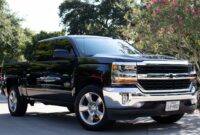U-Haul Trailer Sizes and Prices: Your Comprehensive Guide to Renting the Right Hauling Solution cars.truckstrend.com
Moving, decluttering, or transporting large items often brings one name to mind: U-Haul. Renowned for their ubiquitous orange and white equipment, U-Haul offers an extensive fleet of trailers designed to cater to a myriad of hauling needs. Understanding U-Haul trailer sizes and prices is paramount for anyone planning a DIY move or needing to transport oversized cargo. This comprehensive guide aims to demystify the options, helping you make an informed decision that saves you time, money, and stress.
From compact cargo trailers perfect for dorm room moves to robust car haulers for vehicle transport, U-Haul provides a flexible and accessible solution for almost any hauling challenge. Knowing the dimensions, weight capacities, and pricing structures of these trailers is the first step toward a successful and efficient project. This article will delve into each type of trailer, explore the factors influencing their cost, offer practical advice, and answer common questions, ensuring you’re well-equipped for your next haul.
U-Haul Trailer Sizes and Prices: Your Comprehensive Guide to Renting the Right Hauling Solution
Understanding U-Haul’s Trailer Offerings: A Categorical Overview
U-Haul categorizes its trailers primarily into three types: Cargo Trailers, Utility Trailers, and Auto Transport Trailers (including car haulers and tow dollies). Each category serves distinct purposes, varying significantly in design, capacity, and therefore, price.
Cargo Trailers: Enclosed Protection for Your Valuables
Cargo trailers are fully enclosed, providing protection from the elements and added security for your belongings. They are ideal for moving household goods, furniture, boxes, and anything you want to keep safe from rain, dust, or prying eyes. Their enclosed nature makes them less versatile for oddly shaped or excessively large items that don’t fit through the rear door.
Key Features:
- Enclosed Design: Offers weather protection and security.
- Secure Latches: Keep contents safe during transit.
- Lightweight Construction: Designed to be easily towed by a wide range of vehicles.

Utility Trailers: Open Versatility for Diverse Loads
Utility trailers, also known as open trailers, are characterized by their open-top design and often come with a ramp for easy loading. They are perfect for hauling landscaping materials, construction debris, ATVs, motorcycles, or oversized furniture that wouldn’t fit into an enclosed cargo trailer. Their open nature means items must be properly secured and protected from weather if necessary.
Key Features:
- Open Top: Accommodates tall or unusually shaped items.
- Ramp Access: Facilitates loading of wheeled items or heavy objects.
- Stake Pockets/Tie-Down Points: Essential for securing loads.
Auto Transport Trailers: Specialized for Vehicle Relocation
This category includes two primary types: Car Haulers and Tow Dollies. These are specifically designed for transporting vehicles, whether it’s a cross-country move for your car or simply moving a vehicle that isn’t running.
- Car Haulers (Auto Transports): These are full trailers with a flat platform designed to carry an entire vehicle. They offer four-wheel support, making them ideal for long distances or for vehicles that cannot be towed on two wheels.
- Tow Dollies: These are two-wheel trailers that lift the front wheels of the towed vehicle off the ground, allowing the rear wheels to roll. They are more compact and generally less expensive than car haulers, suitable for shorter distances or lighter vehicles.
Key Features:
- Specialized Ramps and Straps: For secure vehicle loading.
- Braking Systems: Often equipped with surge brakes for safety.
- Vehicle Compatibility: Designed to fit various car sizes.
Detailed Breakdown of U-Haul Trailer Sizes, Capacities, and Typical Uses
Let’s dive into the specifics of each trailer type, including their approximate dimensions, weight capacities, and common applications. Remember, dimensions are internal usable space, and capacities are maximums.
Cargo Trailer Sizes
| Trailer Size (L x W x H) | Approx. Capacity (cu. ft.) | Max Load (lbs) | Approx. Empty Wt (lbs) | Typical Uses |
|---|---|---|---|---|
| 4′ x 8′ | 108 cu. ft. | 1,600 | 850 | Small moves (dorm, studio), boxes, small furniture. |
| 5′ x 8′ | 160 cu. ft. | 1,600 | 900 | Studio/1-bedroom apartment, larger boxes, appliances, ATV. |
| 5′ x 10′ | 200 cu. ft. | 1,650 | 1,050 | 1-2 bedroom apartment, multiple appliances, motorcycles. |
| 6′ x 12′ | 300 cu. ft. | 1,800 | 1,280 | 2-3 bedroom home, large furniture, considerable boxes. |
Utility Trailer Sizes
| Trailer Size (L x W) | Approx. Max Load (lbs) | Approx. Empty Wt (lbs) | Ramp | Typical Uses |
|---|---|---|---|---|
| 4′ x 7′ | 1,750 | 750 | No | Small items, yard waste, furniture. |
| 5′ x 8′ | 1,890 | 910 | Yes | Landscaping materials, ATV, motorcycle, construction debris. |
| 5′ x 9′ (with Ramp) | 1,650 | 850 | Yes | Slightly larger items than 5×8, small riding mower. |
| 6′ x 12′ (with Ramp) | 2,100 | 1,240 | Yes | Large landscaping jobs, multiple ATVs, heavy equipment, large furniture. |
Auto Transport Trailer Sizes
| Trailer Type | Approx. Dimensions (L x W) | Max Load (lbs) | Approx. Empty Wt (lbs) | Typical Uses |
|---|---|---|---|---|
| Tow Dolly | Varies by model | 3,450 | 750 | Small to mid-size cars, short to medium distances. Front-wheel drive vehicles primarily. |
| Car Hauler | 14′ 8" x 6′ 8" | 5,290 | 2,210 | All types of cars, trucks, SUVs. Long distances, non-running vehicles. |
Factors Influencing U-Haul Trailer Prices
U-Haul trailer pricing is dynamic and depends on several key factors, making it challenging to provide exact, fixed costs. Instead, prices are quoted based on your specific rental details.
- Trailer Size: Larger trailers generally cost more than smaller ones due to higher acquisition costs and maintenance.
- Rental Duration: Prices are typically calculated on a daily rate for local rentals. Longer rental periods will naturally increase the total cost.
- Distance (One-Way vs. In-Town):
- In-Town Rentals: These are typically cheaper as you pick up and return the trailer to the same location. They are often charged at a flat daily rate.
- One-Way Rentals: These are more expensive because U-Haul needs to account for repositioning the trailer. The price is based on the mileage between your pick-up and drop-off locations and current demand for that specific route.
- Availability and Demand: Prices can fluctuate based on the availability of trailers at a given location and the demand for rentals during peak seasons (e.g., end of the month, summer, holidays). Booking in advance can sometimes secure a better rate and ensure availability.
- Location: Prices can vary slightly by region or even by specific U-Haul center due to local operating costs and market dynamics.
- Optional Add-ons: Insurance coverage (e.g., Safemove®), moving supplies, and hitches/wiring kits (if you don’t already have them) will add to the total cost.
Estimated U-Haul Trailer Prices (Daily/Starting)
As emphasized, exact prices vary. The table below provides estimated daily starting prices for in-town rentals. One-way rental prices are significantly higher and are quoted on a case-by-case basis through U-Haul’s reservation system. These are subject to change and should only be used as a general guide.
| Trailer Type | Size (L x W x H/W) | Estimated Daily In-Town Price Range (USD) | Notes on One-Way Pricing |
|---|---|---|---|
| Cargo Trailer | 4′ x 8′ | $14.95 – $19.95 | Varies greatly by distance & demand. |
| 5′ x 8′ | $18.95 – $24.95 | Varies greatly by distance & demand. | |
| 5′ x 10′ | $28.95 – $34.95 | Varies greatly by distance & demand. | |
| 6′ x 12′ | $34.95 – $39.95 | Varies greatly by distance & demand. | |
| Utility Trailer | 4′ x 7′ | $14.95 – $19.95 | Generally not available for one-way. |
| 5′ x 8′ | $18.95 – $24.95 | Generally not available for one-way. | |
| 5′ x 9′ (with ramp) | $24.95 – $29.95 | Generally not available for one-way. | |
| 6′ x 12′ (with ramp) | $34.95 – $39.95 | Generally not available for one-way. | |
| Auto Transport | Tow Dolly | $44.95 – $54.95 | Varies greatly by distance & demand. |
| Car Hauler | $64.95 – $79.95 | Varies greatly by distance & demand. |
Important Note: To get an accurate quote for your specific needs, always visit the official U-Haul website (uhaul.com) or call their customer service. Input your pick-up location, drop-off location (if one-way), dates, and desired trailer size for precise pricing.
How to Choose the Right U-Haul Trailer: Practical Advice
Selecting the correct trailer is crucial for safety, efficiency, and cost-effectiveness. Follow these steps:
-
Assess Your Load:
- What are you moving? List all items.
- How much space do you need? Estimate the cubic feet or linear dimensions. For furniture, measure the longest and widest pieces.
- How much does it weigh? Estimate the total weight of your cargo. Use online calculators or average weights for common items (e.g., refrigerator ~250 lbs, couch ~150 lbs).
- Is it weather-sensitive? If so, an enclosed cargo trailer is a must.
-
Consider Your Towing Vehicle:
- Check your vehicle’s towing capacity: This is the most critical step. Consult your vehicle’s owner’s manual or a sticker inside the driver’s door jamb. It will list the maximum weight your vehicle can safely tow. This capacity must be greater than the combined weight of the empty trailer plus your cargo.
- Hitch and Wiring: Does your vehicle have a hitch receiver? Is it the correct class for the trailer you need? Do you have a functional wiring harness for trailer lights (4-flat or 7-round connector)? U-Haul can often install hitches and wiring, but it’s an added cost and requires time.
- Brake Controller (for heavier loads): While many U-Haul trailers (especially car haulers) have surge brakes, some larger trailers or certain towing situations might benefit from or require an electronic brake controller in your vehicle.
-
Match Needs to Trailer Type:
- Small, enclosed, weather-protected: 4×8 or 5×8 cargo trailer.
- Medium-sized, enclosed, weather-protected: 5×10 or 6×12 cargo trailer.
- Oversized, open-air, or items with wheels (ATV, motorcycle, lawnmower): Utility trailer (choose size based on item dimensions and weight).
- Moving a car/truck: Tow dolly (for front-wheel drive, shorter distances) or car hauler (for any vehicle, long distances, non-running vehicles).
-
Factor in Distance and Budget:
- Local move: In-town rental is most economical.
- Cross-country move: One-way rental is necessary, but be prepared for a higher cost. Get a precise quote from U-Haul.
Tips for a Smooth U-Haul Trailer Rental Experience
- Reserve in Advance: Especially during peak seasons (summer, holidays, end of the month), trailers can be scarce. Booking ahead ensures you get the size you need.
- Inspect Thoroughly: Before leaving the U-Haul location, do a walk-around. Check for existing damage, tire pressure, and ensure all lights (running, brake, turn signals) work. Report any issues immediately.
- Load Correctly:
- Weight Distribution: For cargo trailers, aim for 60% of the weight over the front half of the trailer (closest to the hitch). For utility trailers, distribute weight evenly. Never put too much weight on the very back, as this can cause dangerous swaying.
- Secure Everything: Use tie-downs, ropes, and moving blankets to prevent items from shifting during transit. Shifting cargo can destabilize the trailer.
- Do not overload: Never exceed the trailer’s maximum load capacity or your vehicle’s towing capacity.
- Practice Driving: If you’re new to towing, practice turning, backing up, and braking in an empty parking lot before hitting the road.
- Adjust Driving Habits:
- Slower Speeds: Towing requires slower speeds, especially on turns and in windy conditions.
- Wider Turns: Trailers cut corners, so make wider turns to avoid hitting curbs or other obstacles.
- Increased Braking Distance: Your combined vehicle and trailer will be much heavier, requiring significantly longer to stop.
- Monitor Mirrors: Constantly check your side mirrors for trailer sway or issues.
- Consider Insurance: U-Haul offers Safemove® and Safetow® insurance options. While your auto insurance might offer some coverage, U-Haul’s plans specifically cover damage to the U-Haul equipment and your cargo. It’s often a small cost for significant peace of mind.
- Return On Time: Avoid late fees by returning the trailer by the agreed-upon time. If you need more time, call U-Haul immediately to extend your rental.
Potential Challenges and Solutions
- Availability Issues:
- Challenge: The specific trailer size you need isn’t available, especially for one-way rentals or peak times.
- Solution: Book well in advance. Be flexible with your pick-up date/time. Consider an alternative size (e.g., two smaller trailers instead of one large one, if feasible).
- Hitch/Wiring Problems:
- Challenge: Your vehicle doesn’t have a hitch, or the wiring doesn’t work.
- Solution: U-Haul locations often offer hitch and wiring installation services. Plan this well in advance, as it takes time and adds cost. Test your wiring before you pick up the trailer.
- Overestimating Towing Capacity:
- Challenge: You rent a trailer that’s too heavy for your vehicle.
- Solution: ALWAYS verify your vehicle’s towing capacity before reserving. If unsure, err on the side of caution or rent a U-Haul truck that can tow the trailer.
- Hidden Costs:
- Challenge: The final bill is higher than expected.
- Solution: Understand the full quote, including taxes, fees, and optional insurance. Ask about mileage charges (for one-way) and late return policies. Fuel is your responsibility.
- Difficulty Towing:
- Challenge: You’re uncomfortable or inexperienced with towing.
- Solution: Practice in a safe, open area. Watch U-Haul’s instructional videos. If you’re moving a large household, consider hiring professional movers or using a full-service moving company instead of DIY towing.
Frequently Asked Questions (FAQ)
Q1: Do I need a special license to tow a U-Haul trailer?
A1: In most U.S. states and Canadian provinces, you do not need a special driver’s license to tow a U-Haul trailer for personal use, as long as your combined vehicle and trailer weight are within standard limits (typically under 26,000 lbs GVWR) and you meet the regular licensing requirements for operating your tow vehicle. Always check your local Department of Motor Vehicles (DMV) regulations.
Q2: What’s included in the U-Haul trailer rental price?
A2: The base price typically includes the trailer rental for the specified duration and distance. It does not include fuel for your tow vehicle, optional insurance, moving supplies, hitches, wiring, or any installation services.
Q3: Can I rent a U-Haul trailer one-way?
A3: Yes, U-Haul offers one-way rentals for most of its cargo trailers and all auto transport trailers. Utility trailers are generally for in-town use only. One-way rental prices are higher and are calculated based on the distance between your pick-up and drop-off locations and current demand.
Q4: How do I know if my vehicle can tow a specific U-Haul trailer?
A4: You must check your vehicle’s owner’s manual for its maximum towing capacity. Ensure this capacity exceeds the Gross Vehicle Weight Rating (GVWR) of the trailer you intend to rent (trailer empty weight + your cargo weight). U-Haul’s website also has a helpful "towing guide" tool where you can input your vehicle’s make and model.
Q5: Are there any mileage limits on U-Haul trailer rentals?
A5: For in-town (local) rentals, there are no mileage limits; you pay a flat daily rate. For one-way rentals, the price is determined by the distance of your move, and there isn’t an additional per-mile charge beyond the initial quote.
Q6: What if I need the trailer longer than planned?
A6: You should contact U-Haul customer service as soon as possible to request an extension. Extensions are subject to availability and may incur additional daily charges.
Q7: Do I need insurance for the U-Haul trailer?
A7: While your personal auto insurance policy might offer some liability coverage for towing, it typically does not cover damage to the U-Haul equipment or your cargo. U-Haul offers supplemental coverage plans like Safemove® and Safetow® that provide protection against damage to the trailer, your belongings, and sometimes even roadside assistance. It’s highly recommended to review these options for peace of mind.
Q8: Can I pick up and drop off a trailer at different U-Haul locations?
A8: Yes, this is precisely what a "one-way" rental allows. You specify your pick-up and drop-off locations when making the reservation. For in-town rentals, you pick up and return to the same location.
Conclusion
Navigating U-Haul trailer sizes and prices can seem daunting at first, but with a clear understanding of your specific needs and the options available, it becomes a straightforward process. By carefully assessing your cargo, verifying your towing vehicle’s capabilities, and understanding the factors that influence pricing, you can confidently select the perfect U-Haul trailer for your project.
Remember, U-Haul provides a flexible and accessible solution for countless hauling tasks, from moving a single piece of furniture to relocating an entire household or vehicle. Prioritize safety by never overloading, ensuring proper weight distribution, and driving cautiously. With this comprehensive guide in hand, you’re now well-equipped to make an informed decision and embark on a smooth, successful hauling experience with U-Haul. Happy hauling!



